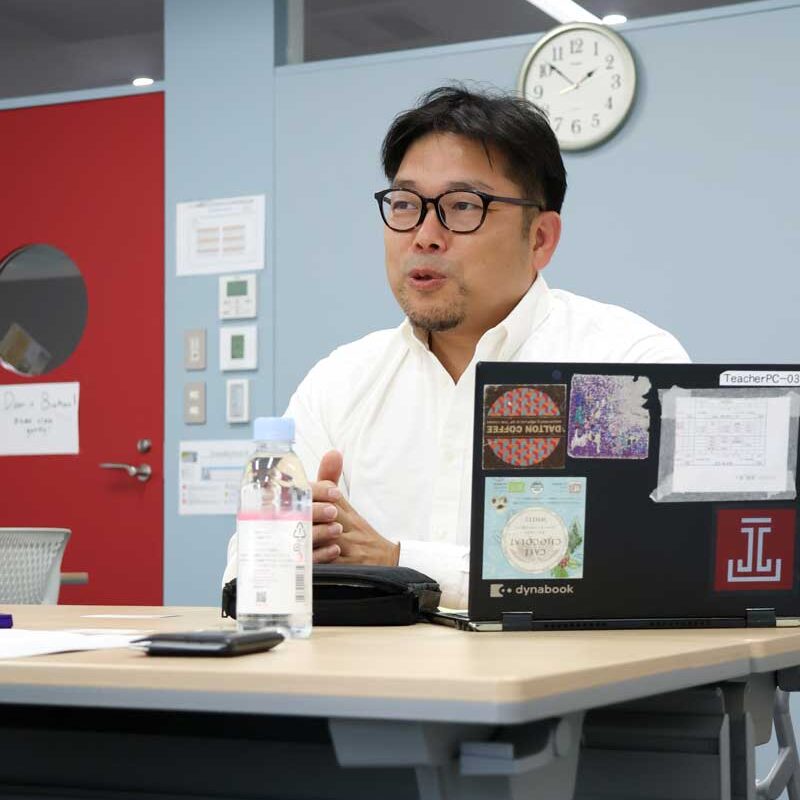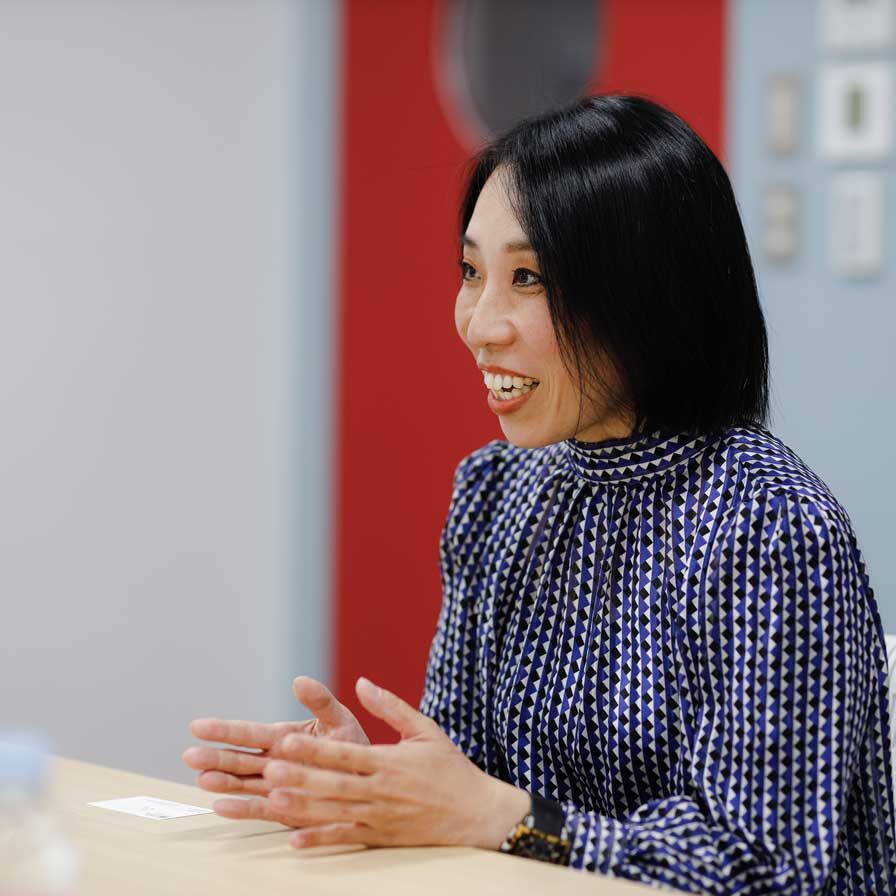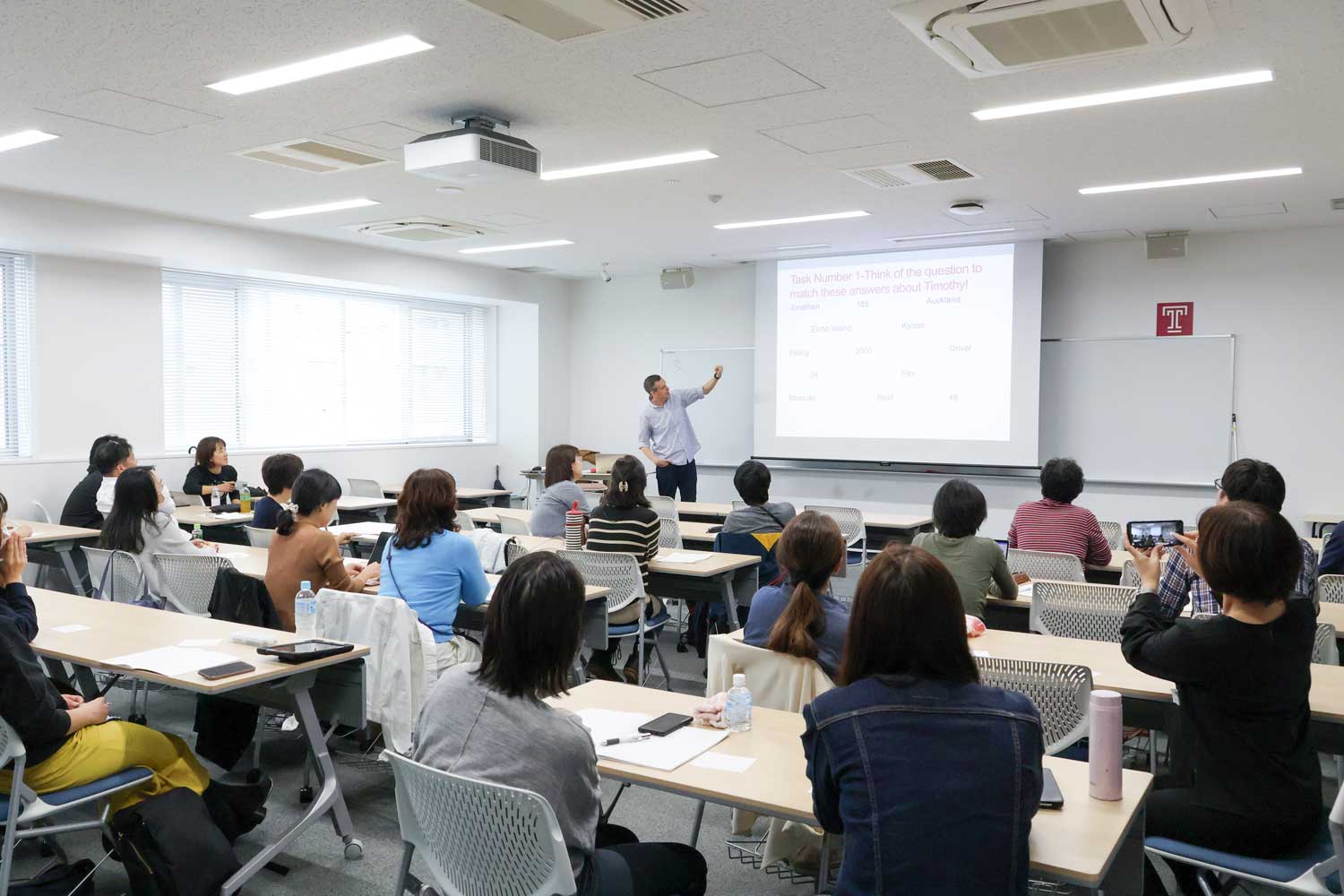Japanese teachers attend a class of U.S. government-backed English Training Program at TUJ.
Temple University, Japan Campus (TUJ) has successfully concluded its English Teacher’s training programs for Japanese teachers, which received grant funding from the U.S. government through the U.S. Embassy. These programs attracted participation from a total of 146 Japanese primary and secondary school English teachers in the Kanto and Kansai regions. The participants expressed their satisfaction with the curriculum, highlighting its effectiveness in improving their communicative English language teaching skills.
TUJ’s Graduate College of Education offered two programs, namely the English Teachers Skill-Up Course and the English Teacher Scholarship Course, which began in January. These programs catered to a diverse range of educators, including teaching professionals and teacher trainers. The tuition was entirely funded by the U.S. government and the programs received nominal support from Japan’s Ministry of Education, Culture, Sports, Science and Technology.
The English skill-up course was made up of in-person classes and video lectures and demonstrations. A total of 75 individuals participated in the in-person course, while 114 opted for the video course. Participants had the flexibility to enroll in either or both of these courses and upon successful completion, they received an “Acknowledgement of Completion.”
In parallel, the scholarship course nominated 71 participants. Among the participants, 54 were selected for the 12-hour distinguished lecture seminars program and 17 were granted full financial support for a three-credit-hour course offered during the summer. This course, titled “Adapting and Developing Language Teaching Materials”, is part of the Master of Science in Education program with a concentration in Teaching English to Speakers of Other Languages (TESOL) offered at TUJ.
Student-Centered Approach

Takeshi Kurosawa, an English teacher at Dalton Tokyo Junior and Senior High School, shared his insight, saying, “All instructors had a common message that it’s important to prioritize a ‘student-centered’ approach rather than a ‘teacher-centered’ approach. The most significant lesson I’ve taken away from this experience is the need to focus on how we can best encourage our students. I already had this mindset, but after attending many classes, I was able to reaffirm this approach.”
Kurosawa, who has 21 years of teaching experience, was selected to take two courses – the Teachers Skill-Up Course (In-Person) and the Scholarship Course (Distinguished Lecture and Distinguished Lecture Seminars). The opportunities in these courses not only allowed Kurosawa to expand his teaching skills but also helped him to reaffirm the knowledge he has accumulated throughout his career. He explained, “I was a high school English teacher and I’m currently teaching junior high school students. One of these courses focused on the elementary level and early childhood education and I was able to apply some of the methods l learned to my own classroom.”
Kurosawa emphasized the importance of teachers continuing to learn, saying “It’s crucial for us, as educators, to create an opportunity for learning, just as we encourage our students to do. I strongly believe that teachers should always be dedicated to ongoing learning.”
Importance of Analysis

Chiho Nakagawa, the head of the English department at the Junior and Senior High School of Kogakuin University, shared her perspective, echoing Kurosawa’s emphasis on the significance of learning to enhance her teaching skills through these programs. “I’m an English teacher and I believe it would be beneficial to deepen my understanding of English instruction. While searching for such opportunities, I discovered this program through the U.S. Embassy. I saw it as an opportunity to enhance my expertise while immersing myself in the field.”
Nakagawa has been selected for three courses – the Teachers Skill-Up Course (In-Person), the Scholarship Course (Distinguished Lecture and Distinguished Lecture Seminars) and the Scholarship Course in Materials Development Course (In person). With about 10 years of teaching experience, she highlighted a key distinction in her approach, saying: “If I had solely aimed to acquire skills, I could have done so at an English language school. But this program made me reflect on how to approach English education from a human perspective and how to effectively teach English. I still sensed a considerable degree of diversity within this program, particularly in terms of identity, and the classes focused on that aspect. I found this to be highly valuable.”
Nakagawa recalls a notable experience in one of the classes she attended, saying: “The instructor shared his personal episodes that were closely linked to the theoretical concepts, making the examples very relatable because I had encountered similar experiences myself. Although I realized that I had been doing things correctly, the instructor taught me how to analyze them more effectively. He also explained the potential outcomes that could arise from a thorough analysis of the data.”
Creativity in Teaching
Last year, TUJ’s Graduate College of Education was selected to receive grant funding from the U.S. Embassy to support these English training programs. This achievement underscores TUJ’s long-term effort to promote its master’s and doctoral programs in education. TUJ has been offering a master’s degree in TESOL since 1982, the year TUJ was established. The TESOL program supports Temple University’s institutional mission by promoting internationalization, linguistic and cultural diversity, teaching excellence, and the integration of research with teaching and learning. About 1,700 master’s degrees and more than 200 doctoral degrees have been granted by TUJ over the last four decades.
In reflecting on the success of the program, Min Lu, the executive director of the Graduate College of Education and Academic English Program at TUJ, said, “One of TUJ Grad Ed’s many missions has been to provide Japanese English teachers with TESOL opportunities to improve their English teaching. Today, in many Japanese elementary and secondary schools, teachers still teach English with traditional methods, emphasizing memorization, explaining grammar in Japanese and word-for-word translation from English to Japanese. The main goal of this grant program was to introduce current teaching professionals to various teaching methods and approaches, to help them understand the importance of creativity in teaching, and to adapt communicative language teaching to their own teaching. I’m confident in saying that the goal has been successfully achieved. We are very grateful and appreciative of the opportunity and support provided by the U.S. Embassy and the U.S. government. We are looking forward to continuing working with program participants to inspire their English teaching.”
Other related stories
- Temple University, Japan Campus Enhances its Continuing Education, Unveiling New Professional Training Certificates (August 14, 2023)
- Temple University’s Education and Law Graduate School Programs Climb Ranks in Annual U.S. News & World Report Survey (June 5, 2023)
- TUJ Wins Grant Funding from the U.S. Embassy to Support an English Training Program for Japanese Teachers (October 17, 2022)

